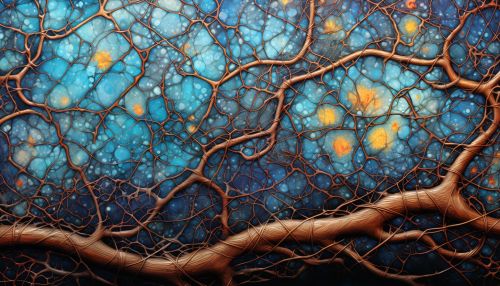Mind and Matter
Overview
The study of mind and matter is a complex and multifaceted field that spans several disciplines, including philosophy, physics, and neuroscience. This article aims to provide a comprehensive and detailed exploration of the relationship between mind and matter, delving deeper than general summaries to offer expert-level information on the topic.


Philosophy of Mind and Matter
The philosophical exploration of mind and matter has a long history, dating back to ancient civilizations. Philosophers have long grappled with questions about the nature of consciousness, the relationship between mind and body, and the extent to which our mental processes can influence the physical world.
Dualism
One of the earliest and most enduring philosophical views on the relationship between mind and matter is dualism. This perspective posits that mind and matter are fundamentally distinct entities. The mind is seen as a non-physical substance, separate from the physical body.
Monism
In contrast to dualism, monism proposes that mind and matter are not distinct, but rather manifestations of the same substance. There are several forms of monism, including physicalism, which posits that everything is physical or material, and idealism, which asserts that everything is mental or spiritual.
Emergentism
Emergentism is another philosophical perspective on the mind-matter relationship. This view suggests that the mind is a higher-level property that emerges from complex interactions of lower-level physical entities, such as neurons in the brain.
Physics and Mind-Matter Interaction
The field of physics, particularly quantum mechanics, has also provided intriguing insights into the relationship between mind and matter. Some interpretations of quantum mechanics suggest that the observer's mind can directly influence the outcome of quantum events.
Quantum Mechanics
Quantum mechanics is a branch of physics that deals with phenomena on a very small scale, such as atoms and subatomic particles. Some interpretations of quantum mechanics suggest that the act of observation can influence the outcome of quantum events, leading to speculation about the role of consciousness in the physical world.
Quantum Mind Theories
Quantum mind theories are a group of hypotheses that propose consciousness or the mind is somehow linked to quantum mechanical phenomena. While these theories are controversial and not widely accepted, they offer intriguing possibilities for the mind-matter relationship.
Neuroscience and the Physical Basis of Mind
Neuroscience provides a more concrete exploration of the mind-matter relationship by studying the physical basis of mental processes in the brain.
Neural Correlates of Consciousness
The neural correlates of consciousness (NCC) are the specific neural events that directly correlate with conscious experience. Identifying the NCC is a major goal in the neuroscience of consciousness, and it provides a direct link between mind and matter.
Neuroplasticity
Neuroplasticity is the brain's ability to reorganize itself by forming new neural connections throughout life. This process is influenced by various factors, including our thoughts, emotions, and experiences, highlighting the interplay between mind and matter.
